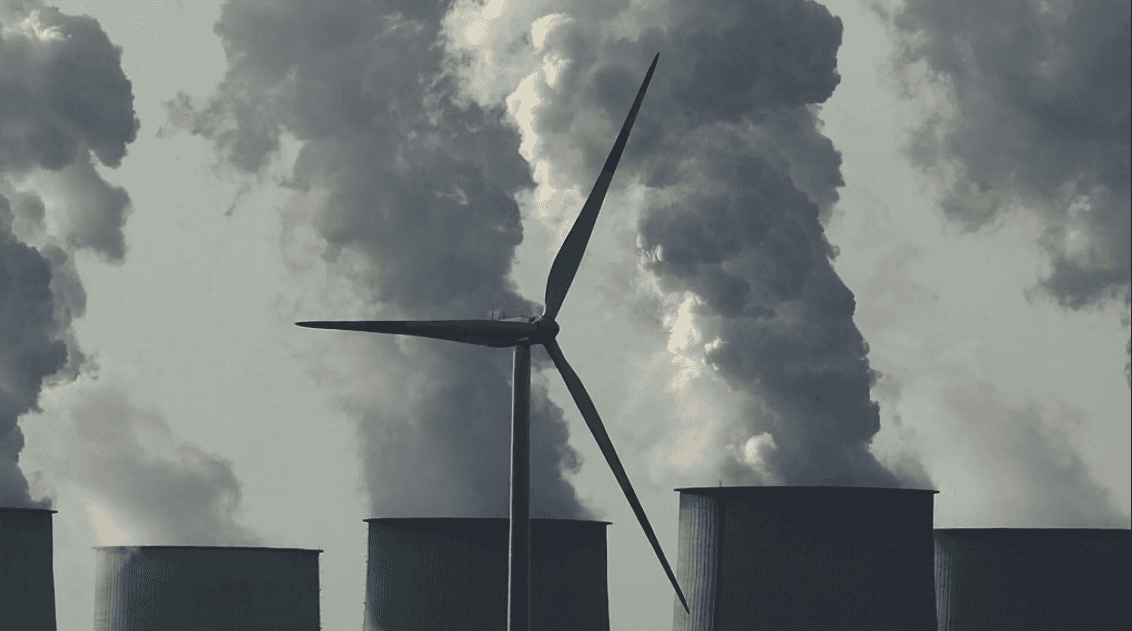The recent rise of populist movements in Western democracies has accompanied an erosion of trust in institutions and expertise. This column examines the dynamic between traditional policymaking – characterised by complex compromise – and the rise, persistence, and recurrence of populism, which tends to encourage extreme and simplistic policies without solid evidence. The link between distrust and ‘alt-truth’ engenders a trap whereby trust in the traditional political class never recovers, leading to a recurrence of populists in power. Surprisingly, this cycle sometimes benefits voters by having a disciplining effect on traditional politicians.
“The last two years of the pandemic have shown, in no uncertain terms, the importance of trust in science and politics, as well as in social discourse, but also the fragility of this trust. […] [Our democracy] lives on solidarity and trust, and also trust in the facts.”
Angela Merkel (2021)
Over the last decade, Western democracies have witnessed a significant erosion of trust in traditional institutions and expertise alongside a rise of populist movements. This trend is fuelled by scepticism toward elites and amplified by misinformation and social media platforms, which enable the spread of alternative narratives that conflict with established scientific and political norms. The debate highlights tensions between respecting the will of the people and ensuring that decisions are informed by evidence-based expertise.
Public trust in traditional politicians and political institutions shapes attitudes toward experts and scientific knowledge. For example, Bargain and Aminjonov (2020) find that European regions with low trust in government were less likely to comply with COVID-19 containment measures (see also Giuliano and Rasul 2020). When mainstream politicians are perceived as self-serving and disconnected from the working-class, this perception fosters broader scepticism, leading individuals to distrust scientific information, especially when it contradicts their pre-existing values or beliefs.
A lack of trust in experts can contribute to the spread of alternative narratives that lack evidence-based support. When individuals lose confidence in scientific information, they may become more inclined to endorse and share alternative viewpoints regardless of evidence. This dynamic is particularly concerning in the context of public health and climate change, where scientific insights are crucial for guiding policy decisions. The correlations illustrated in Figure 1 highlight how distrust in science often parallels distrust in political institutions.
Figure 1 Country-level correlation between trust in government and scepticism toward vaccines (top) and climate change (bottom)




Notes: Insights drawn from country-level Eurostat data.
The embrace of alternative worldviews also influences economic policy, often leading to the promotion of policies that might be ineffective or counterproductive in the long run. When mainstream economic theories and expert advice are dismissed, there is a greater likelihood of public support for ideologically driven policies, which may lack empirical grounding and result in unforeseen negative consequences (Schularick et al. 2021). Namely, when traditional politicians are viewed as disconnected from the public or self-serving, it creates space for populist leaders – who offer alternative narratives with simplistic, draconian solutions very much at odds with sound economic policy – or for unqualified politicians (Svolik 2013).
Populism and the rise of simplified narratives
Populist parties promote simplified, alternative worldviews. This definition aligns with the real-world tactics of populist politicians, but does not encompass all aspects of populism as defined in the broader literature. Populist leaders typically present themselves as advocates for the common people, proposing straightforward solutions to problems that mainstream politicians have failed to resolve (Guriev and Papaioannou 2022). They often push for extreme policies based more on emotional or ideological appeals than on robust economic principles, and they can gather substantial electoral support through these proposals. Figure 2 shows a clear negative correlation between trust in science/experts and the degree of populism in the party individuals choose to support.
Figure 2 Correlation between populist vote and trust in science (top) and experts (bottom)




Notes: Both variables residualised with respect to age, gender, income, employment, political position, interpersonal trust, country FE, and survey mode FE.
Although populist policies may initially appeal to public discontent with the political status quo (Silva and Wratil 2023), their simplistic and drastic nature often leads to negative economic outcomes. Issues like trade, immigration, and environmental regulation are complex and require nuanced and balanced approaches. Populist policies that prioritise isolationism or closed borders (Fritz and Evenett 2019) may appear attractive but often result in significant inefficiencies and reduced economic growth. Similarly, policies that ignore environmental impacts in favour of short-term benefits can have detrimental effects on both the economy and the ecosystem.
The rise of new media has dramatically increased the visibility of simple alternative solutions. Unlike traditional media, which once acted as a gatekeeper of information, social media platforms allow populist politicians to directly reach and mobilise their supporters by appealing to emotions and grievances rather than presenting nuanced arguments. Empirical research suggests that the spread of broadband internet has contributed to the growth of populist support (Campante et al. 2018, Guriev et al. 2021). These platforms amplify the circulation of alternative narratives, which are known to spread more rapidly than evidence-based information (Vosoughi et al. 2018). Ideologically biased traditional media outlets also play a role in spreading and reinforcing different narratives, contributing to polarised beliefs (Djourelova et al. 2024).
Our approach
Economic policies related to immigration, trade, and climate are inherently complex and difficult to address. The policy landscape on issues such as globalisation, border control, and climate change is fractured, cutting across traditional left-right political divides. While cultural differences persist, distinctions between left and right have become less pronounced in the realm of economic policy. However, the complexity of these issues raises public concerns amid an intricate landscape that politicians can exploit as cover for hidden agendas, manipulating policies for their own benefit (Acemoglu et al. 2013, Gratton et al. 2024). When issues are complicated and require constant balancing, it can be challenging for the public to draw clear inferences, which in turn breeds justified distrust toward mainstream politicians (Citrin and Stoker 2018). In fact, negative economic outcomes such as unemployment are correlated with populist voting and distrust of politicians (Dustmann et al. 2017, Algan et al. 2016). Moreover, political and interpersonal trust are both negatively correlated with voting for a populist party (Geurkink et al. 2020, Di Cocco et al. 2024).
In a recent paper (Herrera and Trombetta 2024), we construct a model that sheds light on the dynamics between traditional policymaking – characterised by complex, often biased compromises – and the rise, persistence, and recurrence of populism, which tends to propose extreme, simplistic policies that lack a solid evidence base (Levy et al. 2022). We seek to understand not only the factors behind the initial surge of populism and its relationship with distrust (Guiso et al. 2024, Bellodi et al. 2023), but also its aftermath, exploring the long-term consequences of these dynamics for societal welfare.
The dynamics of populism
In our model, voters hold ‘worldviews’ (Ash et al. 2021, Levy et al. 2022) on the correct model of reality, and use economic outcomes to update their beliefs about the level of trust in traditional politicians. Building on recent literature on worldview adoption and propaganda (Szeidl and Szucs 2024), we allow (dis)trust to increase the probability that a populist worldview is adopted. Combining this feature with a model of strategic traditional politicians, we can track the evolution of trust over time. Unlike the benchmark case without alternative worldviews – where trust converges to its true value and populists are rarely elected – we find that a completely different scenario may arise in which trust remains low and populists return to power, alternating with traditional politicians.
Figure 3 Evolution of trust over time when the populist worldview is absent or sufficiently weak (top), and when the populist worldview is sufficiently pervasive (bottom)




Key insights
- Populist politicians as a check on traditional politicians: Although populist leaders typically deliver suboptimal outcomes compared to traditional politicians, their presence can serve as a corrective mechanism. Populists can pressure biased traditional politicians to improve their performance, acting as a form of discipline within the political system (see also Auriol et al. 2023).
- Trust traps and political cycles: When public trust falls below a certain threshold, populist politicians can trigger a ‘trust trap’, where political power alternates between traditional and populist leaders without restoring public trust. This cycle creates a self-reinforcing dynamic in which trust never fully recovers.
- Welfare impact of the populist cycle: While the populist cycle is often viewed negatively, it can sometimes yield unexpected benefits for voters. The pressure exerted by populists on traditional politicians may enhance their accountability. However, the overall impact on welfare depends on how far populist narratives diverge from reality and the extent of bias among traditional politicians.
- Discrepancy between perceived and actual welfare: Populist rhetoric tends to mislead voters, causing them to overestimate their well-being under populist governance. Although voters may feel that their situation has improved, their actual welfare outcomes often do not match these perceptions.
Application to Western democracies
Our findings have significant implications for several Western democracies, particularly the US, where public trust in political institutions has eroded in recent years. This decline has contributed to a recurring cycle of electoral shifts between Democrats and populist Republicans, a trend that is likely to continue. Trust levels have remained consistently low, as many voters believe the Democratic Party has become too aligned with corporate interests and disconnected from the concerns of working-class citizens. This growing disillusionment has been effectively harnessed by Republican candidates who adopt populist rhetoric, appealing to voters who feel excluded from the political system. These disaffected voters are the most inclined to embrace extreme and simplistic narratives on critical issues such as immigration, trade, and the environment, particularly those promoted by the MAGA faction of the Republican Party.
Source : VOXeu





































































